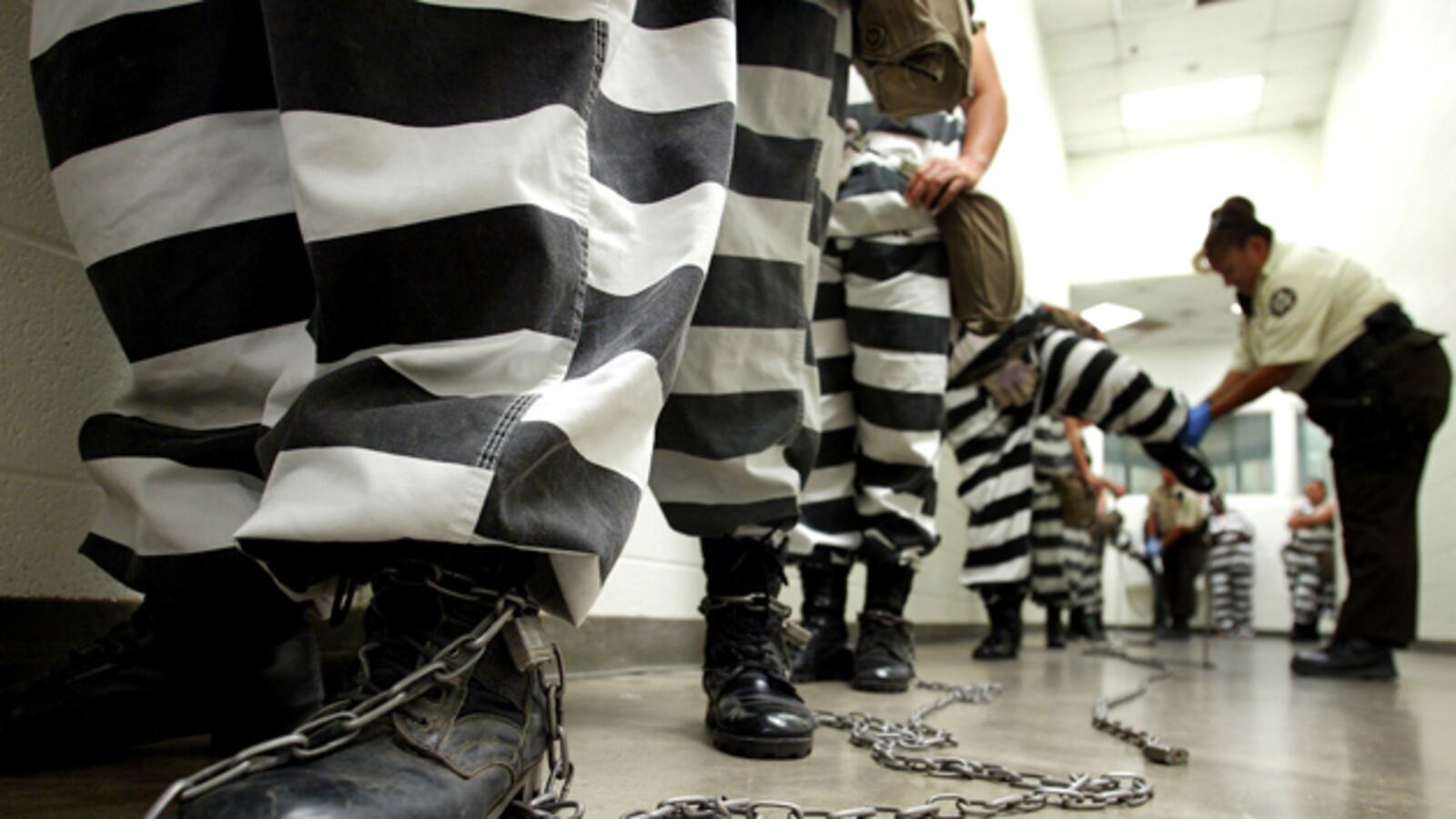Shackles, sexual violence, humiliation. Sounds like a medieval torture chamber, but it’s modern life for many women in prisons across America.
For the past two years, we’ve been collecting the life stories of women behind bars for our new book, Inside This Place, Not of It: Narratives From Women’s Prisons. The stories are chilling: One woman said she was fondled by a medical officer while suffering from a high fever; she had no choice but to submit, she said, if she wanted to receive medication. Another woman was violently raped by an assistant deputy warden. She told us, “This became an everyday thing for two years.” She had no recourse, since reporting these incidents would open a door to retaliation—in the overt form of beatings or in more covert efforts to derail parole.

We’re not alone in our findings. Last month, Rashida Manjoo, the United Nations Special Rapporteur on Violence Against Women, presented a report to the General Assembly summarizing her own fact-finding mission. Her report was a disturbing indictment of the treatment meted out to women in U.S. prisons. Although she noted that a 2003 bill called the Prisoner Rape Elimination Act has led to a decrease in the frequency of sexual abuse, abuse is indeed still prevalent. She described instances of women being compelled to provide sexual favors to guards in return for basic supplies such as food and soap and for access to phone calls or visits with family.
Manjoo was particularly troubled by the poor state of medical care in women’s prisons. Indeed, the women who shared their stories with us backed this up, with unthinkable tales of mistreatment: One woman said she needed a routine surgery to remove an ovarian cyst, and during the procedure, she was sterilized, without her knowledge. She discovered it years later when she sought treatment for another condition. Another woman, a morbidly obese diabetic, was denied adequate treatment until she lapsed into a coma and nearly died. And another was repeatedly misdiagnosed with HIV; for a decade she was unnecessarily treated with liver-damaging medications.

Manjoo also zoomed in on the practice of shackling pregnant women during labor and delivery in the hospital. Although 14 states have enacted laws prohibiting the shackling of pregnant women, she found that in the other states, women “are routinely shackled on their way to and from the hospital and sometimes remain shackled during labor, delivery, and postdelivery.” One of the women in our book, a Hurricane Katrina refugee incarcerated for minor theft, said she herself was shackled before, during, and after her C-section—despite being anaesthetized from the chest down, and thus incapable of movement.
One of the most disturbing findings of the Special Rapporteur was “the general over-incarceration of women, commonly for nonviolent or drug-related crimes.” The number of women in prison has increased dramatically over the past few decades: Women are incarcerated at a rate of eight times that of 32 years ago. Further, in instances where women do commit violent crimes, they frequently do so at the behest of boyfriends and husbands, or to protect themselves from violence.
Today, we have an opportunity to change this sad state of affairs. States facing massive budget shortfalls should consider alternatives to the costly and abusive prison system, such as substantive drug rehabilitation for drug offenses and community service for minor, nonviolent offences. This is the moment to end America’s cycle of unnecessary incarceration, to end institutionalized violence in the prison system.
Forging a check should not lead to a sentence of rape behind bars. To get involved, go to the Rebecca Project for Human Rights.






